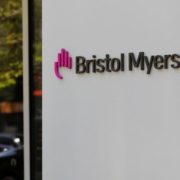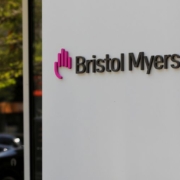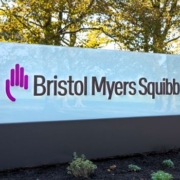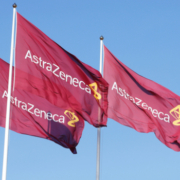BMS’ Augtyro wins FDA accelerated approval for NTRK-positive solid tumors
BMS’ Augtyro wins FDA accelerated approval for NTRK-positive solid tumors
Published: Jun 14, 2024
By Tristan Manalac
BioSpace
Bristol Myers Squibb on Thursday announced that its tyrosine kinase inhibitor Augtyro (repotrectinib) was granted accelerated approval by the FDA for the treatment of NTRK-positive, locally advanced or metastatic solid tumors.
Under the new indication, Augtyro can be used in patients aged 12 years and older whose disease has progressed after initial treatment. Augtyro can also be used in patients with no satisfactory alternative therapies or in those who are likely to suffer from “severe morbidity” due to surgical resection, according to the company.
Under the FDA’s accelerated pathway and to keep Augtyro’s approval, BMS will need to run a confirmatory study to validate the clinical benefit of the drug in this indication and patient population.
Nick Botwood, senior vice president of medical oncology at BMS, in a statement called Augtyro’s approval a “milestone” that “helps address this area of unmet need” and underscores the drug’s “clinical value for more people across multiple genetic markers.”
“Previously, there was not an FDA-approved treatment option for NTRK-positive cancers that was studied in both TKI-naïve and TKI-pretreated patients across solid tumors,” Botwood said, noting that Augtyro can now provide these patients with an effective treatment option.
The FDA’s approval of Augtyro is backed by data from the Phase I/II TRIDENT-1 trial, which enrolled patients who had been exposed to prior TKI treatment and those who were naïve to this drug class. A total of 15 different types of cancer were represented in the study.
Study results showed that Augtyro resulted in a 58% confirmed objective response rate (cORR) in TKI-naïve patients, of which 15% were complete responses (CR). At the time of the analysis, median duration of response in this patient subgroup had not yet been reached. In TKI-pretreated patients, Augtyro’s achieved 50% cORR, with a median response duration of 9.9 months. None of these patients hit CR.
In terms of safety, 7% of patients in TRIDENT-1 discontinued Augtyro treatment due to side effects, while toxicities leading to death occurred in 3.5% of treated patients. Fatal adverse events included pneumonia, cardiac arrest, cardiac failure and respiratory failure.
Designed to be administered orally, Augtyro works by inhibiting the ROS1 proto-oncogene and a suite of tyrosine kinases, blocking fusion proteins that contain ROS1 domains. This mechanism of action allows Augtyro to disrupt signaling cascades that would otherwise lead to the hyperactive proliferation of cancer cells.
The drug was first approved in November 2023 for ROS1-positive advanced or metastatic non-small cell lung cancer.
Source: BioSpace









